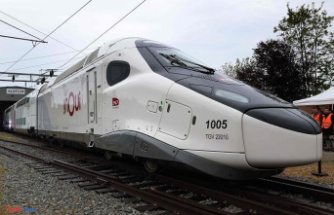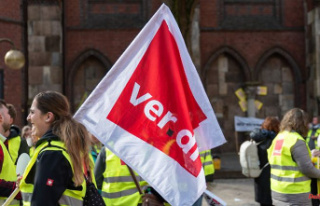German industry has had a difficult time of late. More and more voices are warning of companies moving away. At the same time, Apple is investing another billion in a Munich chip center. In an interview, economist Dohse explains how it all fits together and the dangers of subsidies.
ntv.de: Germany is losing more and more attractiveness as a business location, so the unanimous warning recently. Apple announced this week that it will invest an additional one billion euros in its chip design center in Munich. How does that fit together?
Dirk Dohse: Basically, these are opposing developments. The bad forecasts of the past week have always referred to the energy crisis and the Ukraine war. At Apple, the case is different. High energy prices and the Russian war of aggression could not harm Munich's advantages as a location.
Munich is Apple's largest development site in Europe. Chef Cook justifies the commitment in the Bavarian state capital with the quality of the employees. So doesn't Germany have to hide behind Silicon Valley after all?
Munich, with its many top-trained specialists, is in a way the European counterpart to Silicon Valley. With Google, Amazon, Microsoft and Apple, many major players in the IT industry have settled there. But car manufacturers such as Audi and BMW also have their research laboratories for artificial intelligence in Munich. Even if the Bavarian state capital is certainly more expensive in a nationwide comparison: The costs do not play such a huge role for companies in these areas because of their very high added value. And compared to Silicon Valley, the workforce in Munich is still relatively cheap.
Could Apple's investment be a positive signal for others to follow?
Yes I think so. Chip production in Germany is particularly attractive for many companies. I can well imagine that other companies will soon follow Apple's example.
The energy crisis in particular has recently made things difficult for German industry. To what extent is the drastic jump in energy prices a threat to Germany as a business location?
This varies greatly from industry to industry. Energy-intensive sectors such as building materials, metals, chemicals and paper, for example, are of course badly affected. There are big problems there. In other areas, high energy prices play a less important role. In general, small and medium-sized companies are more affected than large companies because they have fewer strategic adjustment options. Large companies can, for example, outsource very energy-intensive work abroad. Many small and medium-sized companies cannot do this.
In addition to the energy crisis, the lack of skilled workers and high levels of bureaucracy are causing problems for the business location. What else speaks in favor of Germany as a business location?
The professionals we have are well trained. In any case, that still speaks for Germany. In addition, the wage level in this country is not particularly high in international comparison. In addition, there is the central location in Europe and an infrastructure that is on the decline, but still good enough for most companies.
More and more voices are warning of companies moving away. Is possible deindustrialization a realistic concern?
What we are already observing: the share of the manufacturing industry in the total value added in Germany has declined in recent years. However, we also come from a high level. I don't see widespread de-industrialization. Nevertheless, caution is required.
The USA is going its own way: The "Inflation Reduction Act" is intended to promote investments in green technologies in the USA. Couldn't the US subsidy package worth hundreds of billions of dollars also be a role model for Germany?
I don't think we should get into the subsidy race. At the end of the day, it's taxpayers' money. You have to think carefully about whether this will pay off for society in the long term. But it's always annoying when companies that were previously heavily funded in Germany leave the country. In this country, we also have a lot of pretty good start-ups in the field of green technologies or biotechnology that have been funded by taxes. For example, they have used funds from the BMBF, have just reached market maturity and are then immediately lured away with subsidies. It's an ugly story.
Federal Minister of Economics Robert Habeck has brought up tax breaks for investments as a suitable answer.
Tax breaks for selected companies are nothing more than subsidies. You just have to see it that way. To a limited extent, this might still make sense. However, I think it is much more important that Germany becomes attractive for companies as a business location even without subsidies.
What has to happen for the business location to emerge stronger from the crisis?
Investments in education and research are particularly important in order to further strengthen the EU internal market. Basically, our domestic market is no smaller than America's, but it is very fragmented. There are different regulations in the individual countries. That's why we can't really play off the market size. There are many things that make more sense than throwing tax dollars at companies.
What happens if the state does nothing?
Then more companies will indeed migrate. It is very difficult to predict what impact this will ultimately have. In the long run, however, it would result in a significant drop in productivity and growth.
Juliane Kipper spoke to Dirk Dohse












